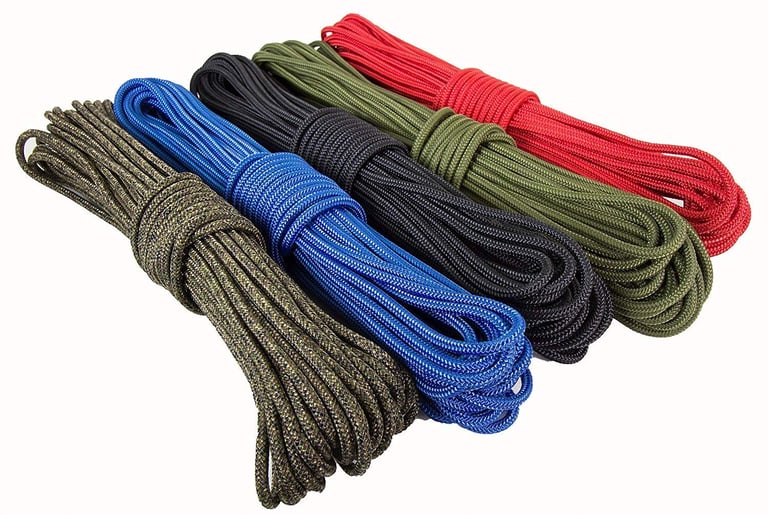"Heavy-Duty tie-down-rope : Secure Cargo, Vehicles & Outdoor Gear Like a Pro"
"Discover the best tie-down-rope for securing freight, vehicles, and outdoor equipment! Learn how to choose durable, weather-resistant cords for safe transport and storage. Shop now!"


When it comes to tying down a load, choosing the right type of rope and size is crucial for ensuring the safety and security of your cargo. Whether you are securing items on a truck bed, trailer, or roof rack, using the appropriate rope can make all the difference. In this article, we will discuss the best type of rope and size for tying down a load, as well as some common uses for tow ropes.
Choosing the Right Type of Rope
There are several types of rope available on the market, each with its own strengths and weaknesses. The choice of rope will depend on the specific requirements of your load and the conditions in which you will be securing it.
1. Nylon Rope
Nylon rope is a popular choice for tying down loads due to its strength, elasticity, and resistance to abrasion. It is highly durable and can withstand heavy loads without stretching or breaking. Nylon rope is also resistant to UV rays and moisture, making it suitable for outdoor use. However, it is important to note that nylon rope can lose strength when wet, so it is essential to keep it dry when in use.
2. Polypropylene Rope
Polypropylene rope is another common choice for securing loads. It is lightweight, strong, and resistant to UV rays and moisture. Polypropylene rope floats on water, which makes it ideal for marine applications. However, it is not as strong as nylon rope and can weaken over time when exposed to sunlight.
3. Polyester Rope
Polyester rope is known for its high strength, low stretch, and excellent resistance to UV rays and abrasion. It is a versatile rope that can be used in various applications, including securing loads. Polyester rope is also resistant to chemicals and has good resistance to moisture. However, it is more expensive than nylon and polypropylene ropes.
Choosing the Right Size of Rope
Once you have determined the type of rope that suits your needs, the next step is to choose the right size. The size of the rope will depend on the weight and size of the load you are securing.
Most ropes are measured in diameter, with common sizes ranging from 1/4 inch to 1 inch. The general rule of thumb is to choose a rope with a diameter that is at least three times the size of the object you are securing. For example, if you are tying down a load that is 6 inches in diameter, you should use a rope with a diameter of at least 18 inches.
It is also important to consider the breaking strength of the rope. The breaking strength refers to the maximum load the rope can withstand before breaking. Make sure to choose a rope with a breaking strength that exceeds the weight of your load to ensure its safety.
Common Uses for Tow Rope
In addition to tying down loads, tow ropes have a variety of other uses. Here are some common applications:
1. Vehicle Recovery
Tow ropes are commonly used for vehicle recovery, especially in off-road situations. If a vehicle gets stuck in mud, sand, or snow, a tow rope can be used to pull it out with the help of another vehicle. It is important to use a tow rope specifically designed for vehicle recovery to ensure its strength and durability.
2. Towing Boats or Trailers
Tow ropes are essential for towing boats or trailers. They provide a secure connection between the towing vehicle and the object being towed. When towing, it is important to choose a tow rope with a breaking strength that exceeds the weight of the object being towed.
3. Emergency Situations
Tow ropes can also be useful in emergency situations, such as pulling a vehicle out of a ditch or assisting in a rescue operation. They provide a reliable means of pulling or lifting heavy objects when other methods are not available.
It is important to note that tow ropes should be used with caution and proper safety measures. Always follow the manufacturer's guidelines and ensure that the tow rope is in good condition before use.
Conclusion
Choosing the right type of rope and size is essential for securing loads effectively and safely. Nylon, polypropylene, and polyester ropes are commonly used for tying down loads, each with its own advantages and disadvantages. When selecting the size of the rope, consider the weight and size of the load, as well as the breaking strength of the rope. Additionally, tow ropes have various applications beyond securing loads, including vehicle recovery, towing boats or trailers, and emergency situations. Always prioritize safety and follow the recommended guidelines when using ropes for any purpose.



